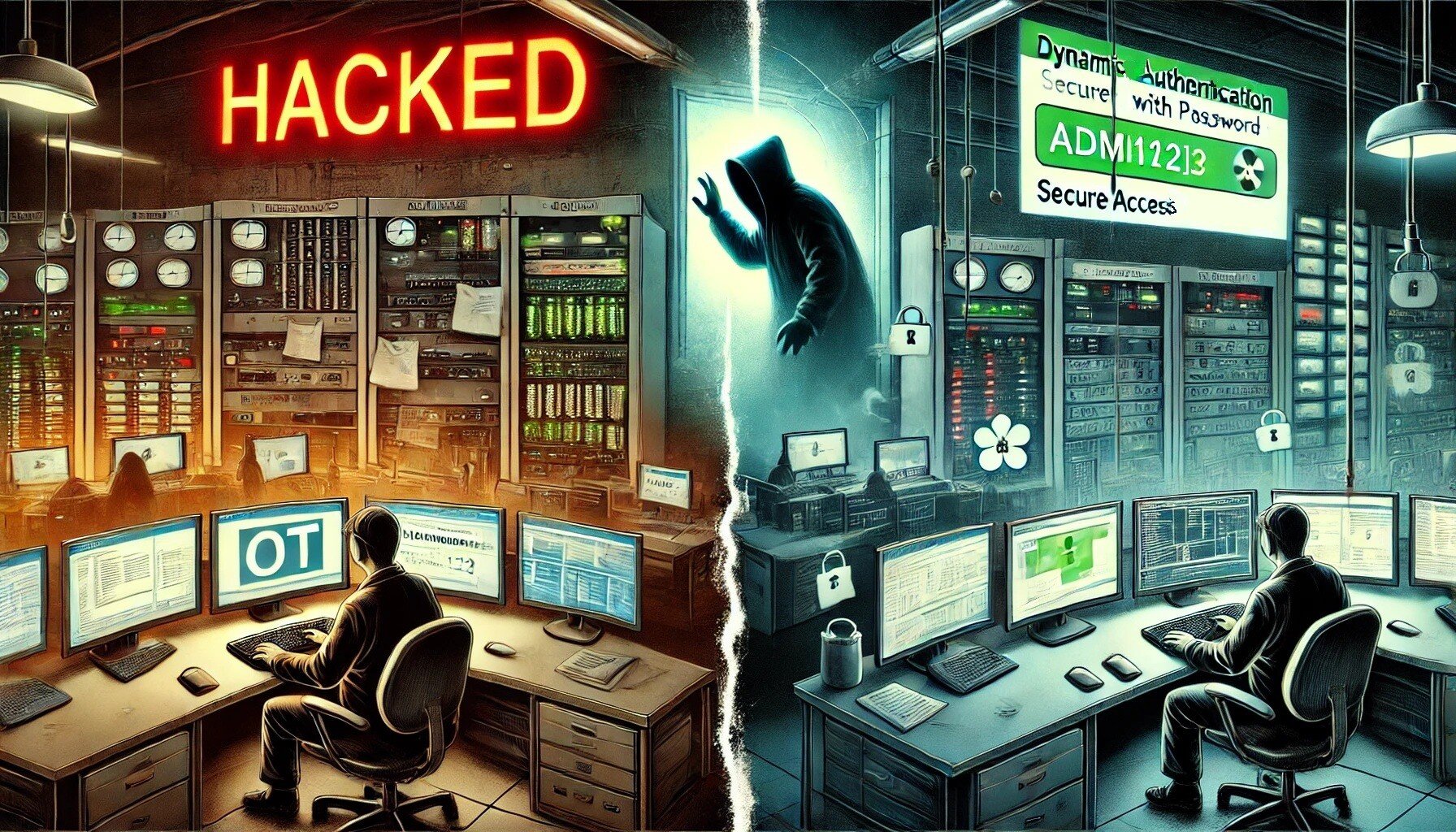Securing the Seas through Advanced Authentication Revolutionising Safer and Cleaner Shipping

The maritime industry is undergoing a significant transformation, driven by the dual imperatives of enhancing safety and reducing environmental impact. From July 2024, all newly contracted ships must comply with the International Association of Classification Societies (IACS) Unified Requirements (URs) for safer and cleaner shipping. As shipping companies adopt advanced technologies to achieve safer and cleaner operations, the importance of robust cybersecurity measures, particularly authentication technology, becomes paramount. Let's explore the correlation between safer and cleaner shipping and authentication technology, highlighting why shipping companies should prioritise advancements in authentication and the benefits that can be gained through this focus.
Charting the Course for Safer and Cleaner Shipping
The maritime industry is increasingly committed to implementing practices that ensure the safety of operations and minimise environmental impact. This commitment is reflected in several key trends:
- Digitalization and Automation: Modern ships are equipped with advanced digital systems and IoT devices that optimise navigation, fuel consumption, and emissions. These technologies enhance efficiency and safety while contributing to cleaner shipping practices.
- Regulatory Compliance: International regulations, such as those set by the International Maritime Organisation (IMO) and IACS, mandate stricter safety and environmental standards. Compliance with these regulations often involves adopting new technologies that require secure access control and data integrity.
- Sustainability Initiatives: Shipping companies are embracing sustainable practices to reduce their carbon footprint and protect marine ecosystems. These initiatives are supported by technologies that monitor and control emissions, fuel usage, and waste management.
The Critical Role of Authentication Technology
As shipping companies integrate more advanced technologies, the need for robust authentication systems becomes critical. Authentication technology ensures that only authorised personnel can access sensitive systems and data, providing a vital layer of security in the increasingly digital maritime landscape.

Why Shipping Companies Must Focus on Authentication
Ensuring secure access to critical systems and data is crucial for maintaining operational integrity and safeguarding against cyber threats. Why should shipping companies prioritise authentication? Consider the following key reasons:
- Preventing Unauthorized Access: Advanced authentication methods prevent unauthorized access to critical shipboard systems, thwarting potential cyberattacks.
- Securing Remote Operations: With the rise of remote monitoring and control, secure remote access is vital. Robust authentication protects these connections from cyber threats.
- Ensuring Data Integrity and Confidentiality: Ships handle vast amounts of sensitive data, from cargo manifests to navigational information. Strong authentication safeguards this data from breaches and tampering.
- Compliance with Regulations: Adhering to cybersecurity regulations often requires advanced authentication measures, which not only ensures compliance but also strengthens the overall security posture.
- Enhancing Operational Efficiency: Efficient authentication methods streamline access for crew members and shore-based personnel, reducing operational bottlenecks while maintaining high security standards.
These points underscore the critical role that authentication technology plays in modern maritime operations, ensuring both safety and efficiency in an increasingly digital landscape.
Real-World Incidents Highlighting the Need for Advanced Authentication
Recent incidents underscore the critical importance of advanced authentication measures in maritime cybersecurity:
- 2019 Navigational Systems Hack: Cybercriminals exploited default passwords to gain access to a ship’s navigational systems, potentially endangering the vessel's route and safety. This incident underscores the critical need for robust authentication measures to secure essential systems (MDPI).
- 2017 Shipping Company Data Breach: A major shipping company experienced a significant data breach due to weak authentication protocols. This breach exposed sensitive data and disrupted operations, highlighting the importance of strong authentication to protect against such vulnerabilities (MDPI) (Maritime Executive).
- 2018 Port of San Diego Ransomware Attack: Hackers leveraged poor authentication practices to deploy ransomware, causing significant operational delays and financial losses. This incident illustrates the devastating impact of inadequate authentication on port operations and overall maritime security (Maritime Executive).
These points underscore the critical role that authentication technology plays in modern maritime operations, ensuring both safety and efficiency in an increasingly digital landscape.
The Benefits of Advanced Authentication in Shipping

Investing in advanced authentication technology yields several significant benefits for shipping companies:
- Enhanced Security: Robust authentication mechanisms, such as One-Time Authentication Code (OTAC), provide strong protection against unauthorized access and cyber threats.
- Improved Compliance: Advanced authentication helps shipping companies meet international cybersecurity regulations and standards, ensuring compliance and avoiding potential fines.
- Operational Resilience: Secure authentication supports the reliability and integrity of digital systems, enhancing the overall resilience of maritime operations.
- Cost Savings: Preventing cyber incidents and ensuring regulatory compliance can lead to substantial cost savings by avoiding the financial and reputational damage associated with breaches and non-compliance.
- Sustainable Practices: Secure authentication supports the safe and efficient operation of technologies that contribute to cleaner shipping, such as emission control systems and fuel monitoring tools.
Future Outlook
As the maritime industry strives for safer and cleaner shipping, the role of advanced authentication technology becomes increasingly important. By investing in robust authentication solutions, shipping companies can enhance security, ensure regulatory compliance, improve operational efficiency, and support sustainable practices. Technologies like One-Time Authentication Code (OTAC) exemplify the innovative approaches being developed to meet the evolving needs of the maritime industry, helping to create a safer, cleaner, and more secure future for global shipping.
--------------------

swIDch will continue its quest to innovate and pioneer next-generation authentication solutions. To stay up-to-date with the latest trends sign up to our newsletter and check out our latest solutions.

When people think of cyberattacks, they often picture stolen data, financial fraud, or personal privacy violations.

In the realm of Operational Technology (OT), the security measures applied to protect critical infrastructure systems

In the world of Operational Technology (OT), firmware updates are a necessary but often overlooked aspect of
Looking to stay up-to-date with our latest news?